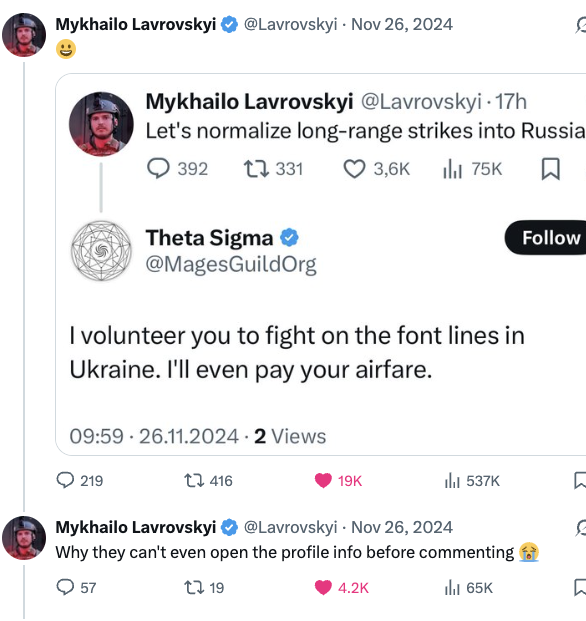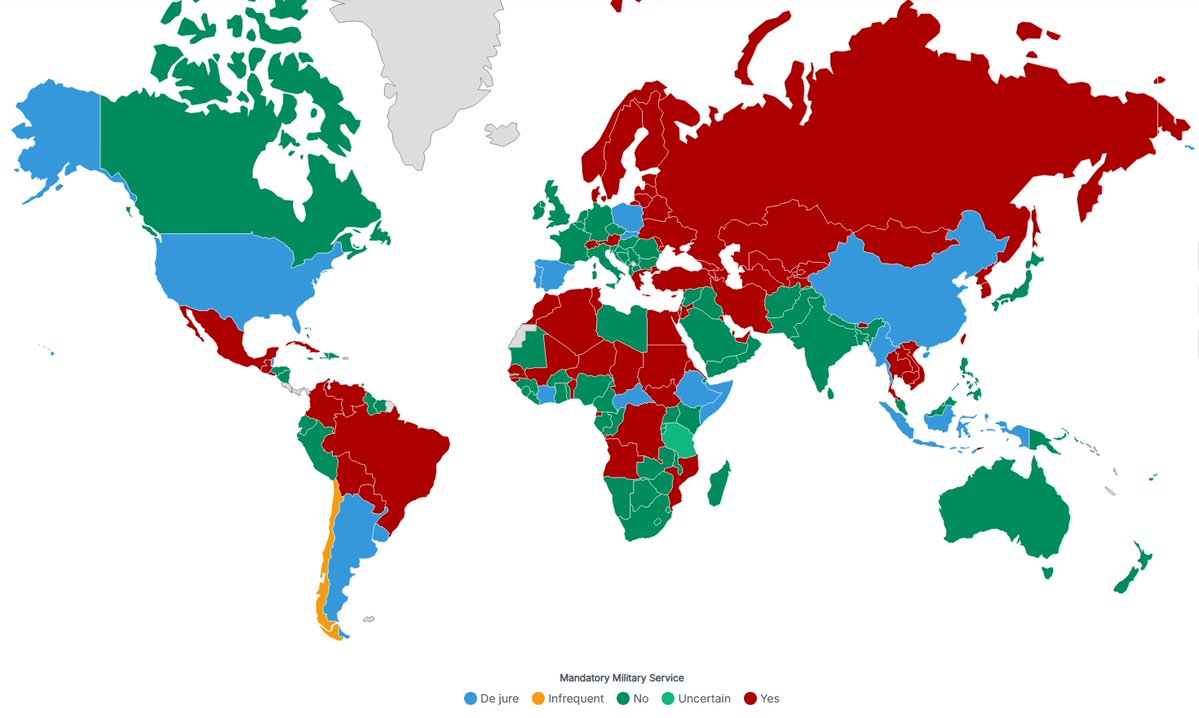In today's #vatnik soup I'll talk about the "fifth column": a group of people who undermine and sabotage a nation or a group from within, usually in favor of a another nation or a group. Their activities often include sabotage, disinfo & propaganda, espionage, and terrorism.
1/19
1/19

Maybe the most famous case of fifth column is Russia's illegals program. Russian Foreign Intelligence Service (SVR) trained several Russian agents to live indefinitely in the US. Their mission was to get involved in high position in the society, build contacts with ...
2/19
2/19
... executives, academics and policymakers, and gather and send intel for the SVR. These "illegals" were often given the identities of dead people and they were supposed to live a normal American life to not raise any suspicion among the common folk.
3/19
3/19

One of the best-known illegals is Anna Chapman, who became the "modern Mata Hari" that tried to seduce her way to state secrets. FBI caught up on the illegals at an early stage, and they were tracked and followed from the beginning of the program in Operation Ghost Stories.
4/19

4/19


In Jun, 2010, 11 people were arrested and the sleeper agents were charged of spying on behalf of Russia. They were later exchanged for four Russian nationals convicted on espionage on behalf of the US and UK.
5/19
5/19

The program was considered to be a failure because of its high costs and bad outcome in terms of intel gathered, but the illegals and those who spy for Russia are considered heroes, and many of them have been offered prominent positions after their return to the motherland.
6/19
6/19
Anna Chapman, the "Modern Mata Hari", has become a famous celebrity in Russia, modeling for various magazines, having her own TV show and advertising state-sponsored activities such as encouraging people to take the Sputnik-V COVID-19 jab.
7/19
7/19

Andrey Bezrukov and Yelena Vavilova are both working as authors and Andrey is also an adviser to president of Rosneft. Bezrukov & Vavilova also served as the inspiration for the main characters of the (fantastic) TV show The Americans.
8/19

8/19


Some time after this Russians started focusing more on online propaganda and cyber warfare. Russia already had a very strong hacker scene dating back to the 90s, but their new plan was something completely fresh in the propaganda sphere: ...
9/19
9/19

... they would utilize fictious "digital illegals" in hybrid warfare against the West. It provided both remoteness and implausible deniability for these digital actors, and technologies such as VPN allowed them to be geographically from any place on earth.
10/19
10/19

The most famous spawning point for digital illegals was Yegveny Prigozhin's Internet Research Agency (IRA), but the main script was written by a man named Vladislav Surkov. His idea was to polarize and confuse the West by funding various, opposing parties or organizations.
11/19
11/19
For example, IRA would fund both pro-BLM and anti-BLM movements and rally them against each other. Russian disinformation and propaganda machinery exploited the West's idea of free speech and free press, ...
12/19
12/19

... and they launched several websites and communities such as "Secured Borders" and "Blacktivists" with a sole purpose of spreading hate and confusion among the Western nations.
In 2016, a man named Matt Skiber became active in the US political sphere.
13/19

In 2016, a man named Matt Skiber became active in the US political sphere.
13/19


He was very active in politics and organized events such as "March for Trump" rally in NY. He arranged megaphones, designed posters, wrote press releases and communicated with other Trump supporters.
14/19
14/19

In reality, Matt Skiber wasn't a real person, but a digital illegal and a IRA employee depicting as a Trump supporter. On that particular day his job was to promote Trump and mock Hillary Clinton, but the next day it could be something completely else.
15/19

15/19


These digital illegals were extremely effective and very cheap assets, which is why Russia has been investing in them for over a decade. In this type of digital warfare, Russia was one step ahead and the West is now paying a hard price for their overlook of the phenomenon.
16/19
16/19

A Reuters report wrote a very interesting report on Cologne's fifth column: reuters.com/investigates/s…
Cologne has been a home for many large-scale pro-Russian demonstrations throughout the Russo-Ukrainian War:
17/19
Cologne has been a home for many large-scale pro-Russian demonstrations throughout the Russo-Ukrainian War:
https://twitter.com/visegrad24/status/1566495023625310208
17/19

Many of the key figures work in both real and the digital world and they do it very effectively, and most of them are Russian immigrants with connections to Russian intelligence agencies and/or neo-nazis.
This is what a successful fifth column activity looks like.
18/19

This is what a successful fifth column activity looks like.
18/19


Related soups:
Prigozhin / IRA:
Vladislav Surkov:
Russian info ops:
19/19
Prigozhin / IRA:
https://twitter.com/P_Kallioniemi/status/1590238211527217152
Vladislav Surkov:
https://twitter.com/P_Kallioniemi/status/1593137159317655553
Russian info ops:
https://twitter.com/P_Kallioniemi/status/1600752100966662144
19/19
• • •
Missing some Tweet in this thread? You can try to
force a refresh



































